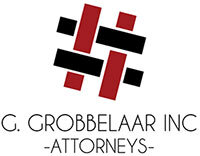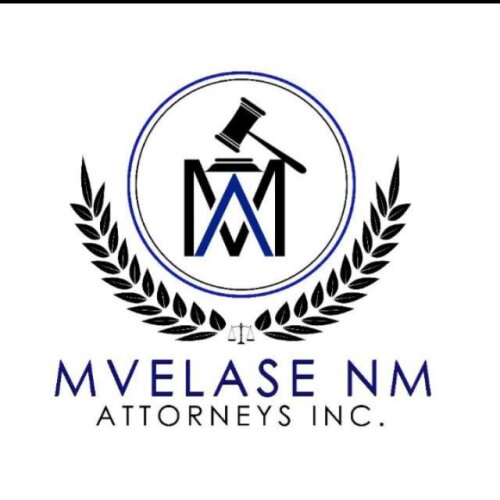Best Car Accident Lawyers in South Africa
Share your needs with us, get contacted by law firms.
Free. Takes 2 min.
Or refine your search by selecting a city:
List of the best lawyers in South Africa
About Car Accident Law in South Africa
Car accident law in South Africa is primarily concerned with addressing disputes that arise from traffic collisions. The law covers a wide array of issues, including determining liability, securing appropriate compensation for damages and injuries, and ensuring compliance with insurance requirements. South Africa follows a fault-based system, meaning that the responsible party (or their insurer) is liable for any damages incurred. The legal framework also involves aspects of the Road Accident Fund (RAF), designed to provide compensation to victims of road accidents, regardless of the driver's solvency.
Why You May Need a Lawyer
In many cases, individuals involved in car accidents may benefit from legal advice or representation. Common situations where legal help is needed include:
- Severe injuries leading to high medical costs or long-term disability.
- Disputes over liability where parties disagree on who was responsible for the accident.
- Complicated claims involving multiple parties or insurance companies.
- Cases where the Road Accident Fund (RAF) rejection or inadequate compensation is a concern.
- Hit-and-run incidents where the at-fault driver is unknown.
- If there is a significant difference between the settlement offered by an insurer and the actual costs incurred.
- When expert negotiation is required to reach a fair settlement in a timely manner.
Local Laws Overview
Several local laws in South Africa are particularly relevant to car accidents:
- The Road Traffic Act: This governs the rules of the road and specifies the conduct of drivers and pedestrians. Non-compliance can lead to fines or more serious penalties.
- The Road Accident Fund (RAF) Act: This establishes the RAF, which compensates victims of road accidents for personal injuries sustained. It is financed through a levy on fuel.
- Common Law Principles: These principles determine negligence and liability. The onus is on proving who was at fault in an accident.
- Insurance Regulations: Given that vehicle insurance is not compulsory in South Africa, understanding your insurance policy terms becomes critical, especially concerning third-party liability.
Frequently Asked Questions
What should I do immediately after a car accident?
Ensure safety first, check for injuries, and move vehicles out of traffic if possible. Call emergency services if anyone is injured. Document the scene, exchange details with other drivers, and report the accident to the police.
How do I claim from the Road Accident Fund?
To claim from the RAF, you must complete and submit the RAF form along with documents like police reports, medical records, and proof of expenses, either directly or through a lawyer who can manage the process on your behalf.
Can I claim for property damage from the RAF?
No, the Road Accident Fund only covers personal injuries, not property damage. Claims for vehicle damage must be pursued through the liable party's insurance or directly from them, if uninsured.
What is the time limit for filing a claim with the RAF?
You have three years from the date of the accident to file a RAF claim if the identity of the driver is known. If it's a hit-and-run (unknown driver), the limit is two years.
What constitutes negligence in a car accident case?
Negligence occurs when a driver fails to exercise reasonable care, leading to an accident. Examples include speeding, disobeying traffic signals, or driving under the influence.
What happens if I’m partially at fault for the accident?
South African law operates on a contributory negligence system. If you're partially at fault, the compensation you can receive may be reduced proportionally to your level of fault.
Do I need a lawyer to claim from the RAF?
It's not mandatory but advisable, especially in complex cases. A lawyer can help navigate the legal system, negotiate settlements, and ensure proper presentation of your claim.
How is compensation calculated for injuries?
Compensation is based on several factors, including medical expenses, loss of earnings, and general damages for pain and suffering, depending on the severity of injuries.
Can passengers claim from the RAF?
Yes, passengers can file claims with the RAF for injuries sustained in an accident, regardless of the vehicle they were in.
What if the other driver is uninsured?
If the other driver is uninsured and at fault, your own insurance policy might cover damages if you have appropriate coverage. Otherwise, you may need to pursue a civil lawsuit against the driver.
Additional Resources
Here are some resources and organizations that can be helpful:
- Road Accident Fund (RAF): For guidance on claims and related processes.
- South African Police Service (SAPS): For reporting accidents and obtaining police reports.
- South African Insurance Association (SAIA): For understanding insurance-related queries and processes.
- Legal Aid South Africa: For legal advice and assistance if cost is a barrier.
Next Steps
If you need legal assistance following a car accident, consider the following steps:
- Gather all necessary information and documentation related to the accident, such as police reports, medical records, and photographs.
- Consult with a legal professional specializing in car accident or personal injury cases. They can help assess your situation and discuss potential strategies.
- If you plan to claim from the RAF, promptly file your claim within the prescribed time limits.
- Keep detailed records of all related expenses and communications for future reference.
- If you struggle to find a lawyer, consider reaching out to legal aid organizations for assistance.
Understanding your rights and the legal processes involved can make a significant difference in achieving a favorable outcome following a car accident in South Africa.
Lawzana helps you find the best lawyers and law firms in South Africa through a curated and pre-screened list of qualified legal professionals. Our platform offers rankings and detailed profiles of attorneys and law firms, allowing you to compare based on practice areas, including Car Accident, experience, and client feedback.
Each profile includes a description of the firm's areas of practice, client reviews, team members and partners, year of establishment, spoken languages, office locations, contact information, social media presence, and any published articles or resources. Most firms on our platform speak English and are experienced in both local and international legal matters.
Get a quote from top-rated law firms in South Africa — quickly, securely, and without unnecessary hassle.
Disclaimer:
The information provided on this page is for general informational purposes only and does not constitute legal advice. While we strive to ensure the accuracy and relevance of the content, legal information may change over time, and interpretations of the law can vary. You should always consult with a qualified legal professional for advice specific to your situation.
We disclaim all liability for actions taken or not taken based on the content of this page. If you believe any information is incorrect or outdated, please contact us, and we will review and update it where appropriate.
Browse car accident law firms by city in South Africa
Refine your search by selecting a city.
















